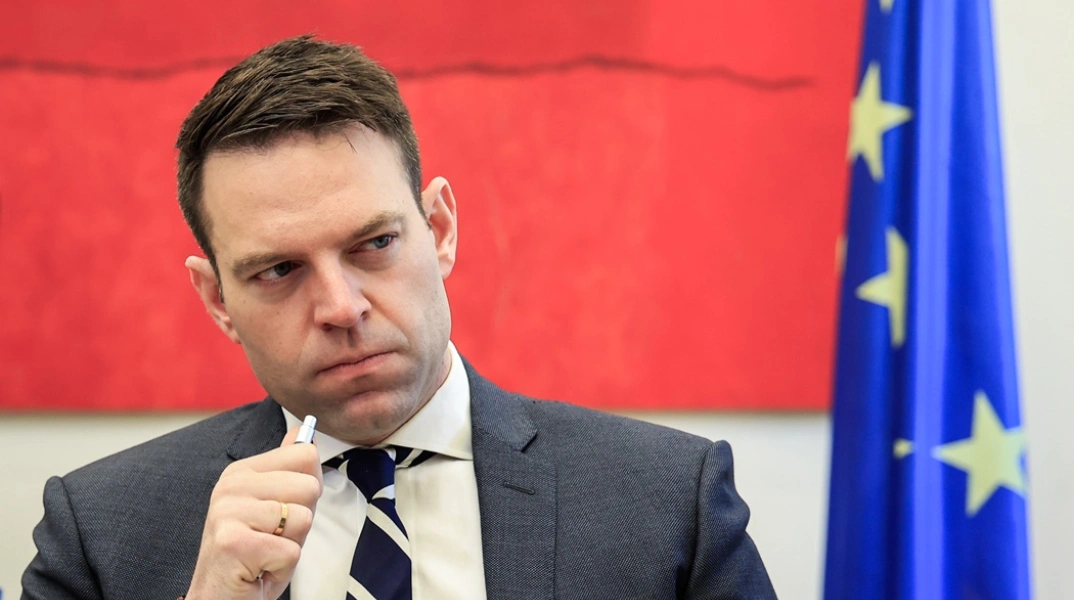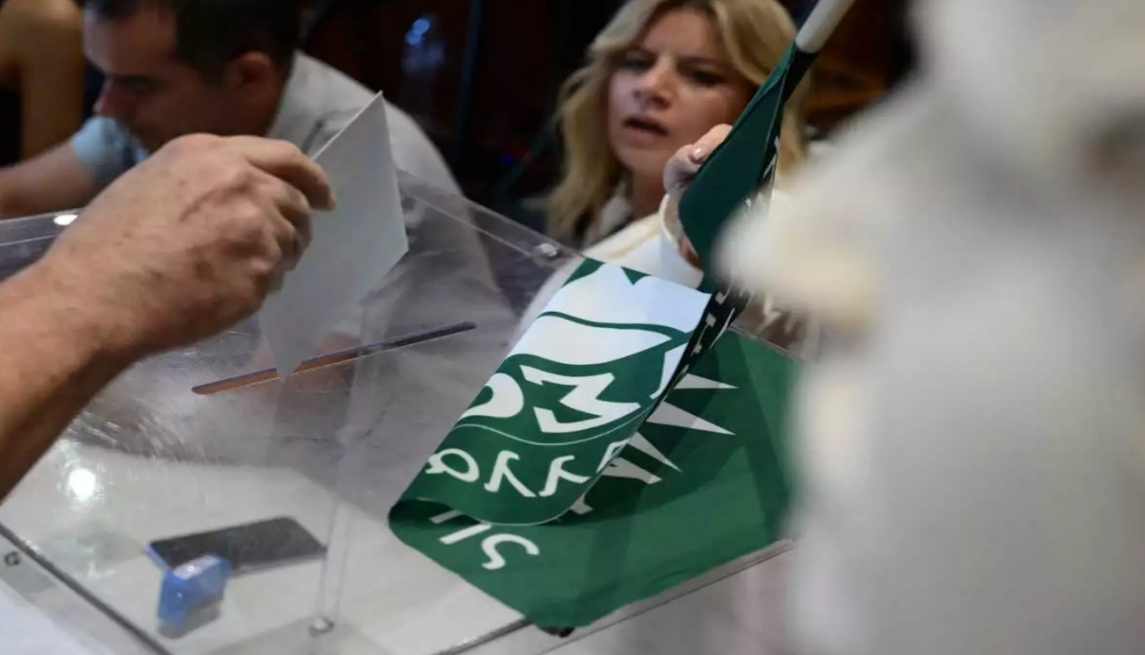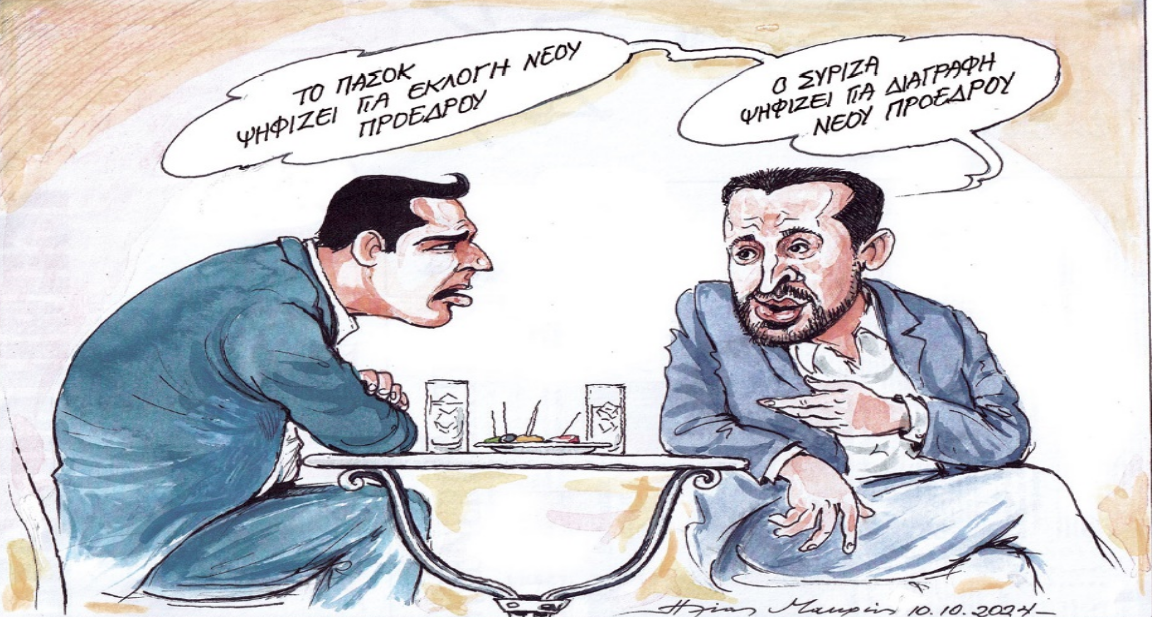By Dimitris Kouvaras,
As you will notice, this article is not an ordinary one. With it, I don’t aim to explain or exhaustively examine the situation that urged me to write it, although I will contextualise it as well as I can. In that sense, my perspective is not that of a journalist –least of all that of an expert– but rather that of an averagely informed citizen able to ask questions when the circumstances are ripe for doubt. The current Greek political landscape is more than that. What used to be for years an explosive battleground of conflicting policies, statements and actions (including many aspects of political toxicity or political bluff, like overstatements, inflamed promises or defamatory rhetoric), has for some time receded into an overwhelming quietness. At least, that is the picture regarding interparty interactions, which lay at the core of any parliamentary democratic system in which opposing groups are supposed to converse —and even collide—to direct national policy.
The political news circulating these days, as well as all the political buzz, are of a different character. They relate to crucial internal proceedings in the second and third parties, as both are faced with crisis. SYRIZA, the left-wing party which currently serves as opposition, is the major political patient. After its ascension to government in 2015, it has been undergoing a period of stadial decline, after its policies were charged for creating much of the financial and diplomatic uncertainty as well as the austerity policies of the period up to 2019. At the core of disbelief lays the political “back-flip”, in which the rejection of the third financial memorandum imposed on Greece by its European creditors was reinterpreted as acceptance, with the deal being signed none the less. Low electoral turnouts following defeat in 2019 led Alexis Tsipras, former party president and prime minister, to resign, while a total outsider, Stefanos Kasselakis took the party leadership.

The latter’s right-wing-leaning corporate background in the United State, inability to put forward a coherent political discourse or policy program, “celebrity” self-branding (greatly reinforced by media outlets and enhancing hollow gossip over politics), and rather authoritarian handling of intraparty dynamics aggravated internal tensions, which in turn crumbled SYRIZA’s appeal and paved the way for defections. In the May 2023 election some former members run separately under the label “New Left”, while SYRIZA obtained a meagre 20,7 %. Enmity towards Kasselakis along with unreasonable actions on his part, including a dubious effort to change the party’s name, created tensions, which erupted in the form of a call for new leadership and a decision by the Central Committee to ban Kasselakis’ candidacy. Now, as he intends to challenge the decision in the November party conference, a full-frontal clash is expected and total breakdown looms over the horizon. Consequently, Greece is effectively deprived of an active opposition.
The other party in question is PASOK, the centrist third party, whose homonymous predecessor dominated Greek politics along with New Democracy for almost three decades, from 1981 until 2004. Overspending, corruption and mishandling of national debt, which strained the Greek economy, are some of the primary charges which led to its downfall in the context of the 2009 financial crisis. Since its reemergence, it has been struggling to reassert a coherent political narrative and satisfactorily differentiate itself from either its right or left-wing political neighbours. What it also struggles with is charismatic leadership, a role which Nikos Androulakis apparently did not fulfil considering the disappointing 11, 45 % of the latest election. This led to intraparty elections in which the latter competed against the dubious figure of the current mayor of Athens, whose actions seem to lag far behind his promises and whose modest “outsider” outlook evaporated as he bid for party presidency. The result was a re-election of Androulakis, with lower turnout in the second round. Where reform was sought, stagnancy resulted.

As intraparty conflicts dominate the scene and almost monopolise political and media discourse, an antithesis arises over the lack of oppositional political discourse in Parliament, which should be the foundation of any properly functioning democracy. The main oppositional parties, which are also supposed to engender the “human” face of the centre-left amidst precarious financial and social conditions, are practically absent from their main duty, which is none other than challenging government policies. New Democracy, the centre-right (or just right-wing for some) governing party, enjoys an alarming normalisation of its monopolising official political discourse, and the disturbing confidence of having no political counterweight to be reckoned with. Instead, what the introverted stance of SYRIZA and PASOK create is a framework of passive acceptance, occasionally punctuated by the dissenting cries of smaller parties, such as the Communist Party of Greece and “Plefsi Eleftherias”, not to mention the three far right and ultraconservative ones. The fact that this lack of political discourse is being normalised by its prolongation is what I fear the most as a citizen. It’s consequences are evident from the fact that sensational scandals, including the fatal Tempi train crash and an illegal surveillance operation against Androulakis, ended up inflicting little damage to governmental popularity in the poles, albeit being a source of widespread social attention, demonstration and concern. What likely lay behind this tendency is the fact that many people of a centrist or leftist orientation feel unrepresented, while many tend to stick to New Democracy as the lesser of all evils and the only party maintaining a “solid” (according to the party) claim to governmental, fiscal and diplomatic know-how.
2024 is the 50-year anniversary of Metapolitefsi, the restoration of democracy in 1974. As I wondered around the city, I encountered many exhibitions relating to this landmark. One of them, in a central metro station of Athens, portrayed a selection of political caricatures found in the press since 1974. They were a persistent reminder that Greek democracy has not been perfect. Among the most recent, there was one portraying Kyriakos Mitsotakis, current prime minister and leader of New Democracy, fighting with thin air on top of a podium, as other party leaders watched from down below. Another depicted a cinema where a film on Kasselakis, who was ironically portrayed as a superhero, was projected. Both were on point. The silence on the Greek political front must end, for a democracy cannot but function through dialogue. Monologue and murmur, which depict the current circumstance, are simply not enough.
References
- Androulakis re-elected PASOK leader. E-kathimerini. Available here
- SYRIZA’s future: Split or referendum Kasselakis’ next moves after Central Committee showdown. ProtoThema English. Available here




